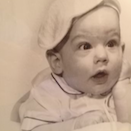Jodi Picoult on the Dark Side

Before you click play on our conversation with best-selling author Jodi Picoult, ask yourself this: Would you forgive Ieng Sary?
I never heard of Ieng Sary either until I stumbled upon his obit on CNN's website:
"It was one of the worst genocides since the Nazi era. The brutal Khmer Rouge took over Cambodia in 1975 and terrorized the population for four years, killing more than one million people. One of its infamous leaders died Thursday, escaping judgment for war crimes at the hands of a U.N. tribunal. He was the foreign minister under, and the brother-in-law-of, Khmer Rouge dictator Pol Pot."
This man, in the inner circle of genocide, never asked for forgiveness before dying this week in a prison hospital and before a court could reach a verdict. He was 87 and lived most of his life a free man.
Now, flash back more than 30 years before the Khmer Rouge genocide, a Jewish inmate in a Nazi slave labor camp was brought into a hospital room where a Nazi soldier was dying of his battlefield wounds.
The young soldier had participated in the mass murder of hundreds of Jewish families who were rounded up, locked in a small house which was then set on fire. No escape. The Nazi soldier asked to speak to a Jew. He wanted to confess to a Jew. He wanted forgiveness from a Jew so he could die in peace.
The Jewish prisoner called in for the confession was Simon Wiesenthal, who survived the Holocaust and gained fame as he devoted the rest of his life to hunting down Nazis.
Picoult read this story in Wiesenthal's memoir, The Sunflower. And it got her thinking: What if she could bring this story into a modern day setting - New Hampshire for example, which is where she lives with her family.
The result is her new book, The Storyteller.
Picoult is known for tackling dark themes.
In this CNN Profile she explains why she is drawn to those themes.
And we discover why old news can fuel fresh insights and eternally relevant questions
Wiesenthal did not forgive the Nazi soldier.
But he struggled with that decision.
And so does Picoult. Her readers might too.

